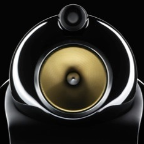Leaderboard
Popular Content
Showing content with the highest reputation on 01/30/20 in all areas
-
A template repository from a group of Unraid users that wants to bring more awesome containers into this community. Help regarding the applications are entirely community driven, I do only monitor this thread for issues with the templates themself. We already have 40 containers in Community applications, Including; Bitwarden_rs, Huginn, Paperless and Tdarr. Templates with their own support thread: Paperless Paperless-ng Bitwarden_rs Tdarr & Tdarr_aio Templates we offer, with their own support channels: Adminer - App Support: GitHub AirConnect - App Support: GitHub BW_Plex - App Support: GitHub Chevereto - App Support: chevereto.com Cloudflare-DDNS - App Support: GitHub Cloudflared - App Support: GitHub Crushftp9 - App Support: GitHub Deemix - App Support: GitLab Draw.io - App Support: GitHub Duplicacy - App Support: forum.duplicacy.com Geioip2influx - App Support: GitHub Graylog - App Support: GitHub Hexo-blog - App Support: GitHub Huginn - App Support: GitHub Idrac6 - App Support: GitHub Invoiceninja - App Support: GitHub Kdenlive VNC - App Support: GitHub Kitana - App Support: GitHub Komga - App Support: GitHub Lemur-cfssl - App Support: GitHub Logarr - App Support: Discord Mango - App Support: GitHub Mellow - App Support: GitHub Monica - App Support: GitHub Monitorr - App Support: GitHub NoSQLClient - App Support: GitHub Openldap - App Support: GitHub Overleaf - App Support: GitHub Phpldapadmin - App Support: GitHub LDAPforPlex - App Support: GitHub Pasta - App Support: GitHub Plex-web - App Support: GitHub Podgrab - App Support: GitHub PrivateBin - App Support: GitHub Prometheus - App Support: GitHub Quasselcore - App Support: GitHub Radarrsync - App Support: GitHub Red-discordbot - App Support: GitHub Requestrr - App Support: Discord Scrutiny - App Support: GitHub Shoko-server - App Support: GitHub Speedtest-tracker - App Support: GitHub Sstvproxy - App Support: GitHub Syncarr - App Support: GitHub Teedy-docs - App Support: GitHub Traccar - App Support: GitHub UniFi-Poller - App Support: community.ui.com Unpackerr - App Support: GitHub Wikijs - App Support: GitHub XBackBone - App Support: GitHub Xibo-cms - App Support: GitHub Xibo-xmr - App Support: GitHub Youtube-dl material - App Support: GitHub zigbee2mqtt - App Support: Github zwave2mqtt - App Support: GitHub The way we work is by taking suggestions, or Pull Request about potential applications to include into our repository through GitHub. This is our support thread for most of the containers, however some might get its own dedicated thread in based on feedback. We won't necessarily provide app-support but we will for the best of our abilities point you towards the right channels for such. We also have discord server.1 point
-
Upgraded from 6.7.2 to 6.8.2, and no issues as far as I can see so far. Thanks for the hard work team!1 point
-
I did and it crashed alot. Not sure why. Tried everything I could think of and researched. Ended up returning it for Intel I7 8th Gen and MSI board...1 point
-
1 point
-
What it means has been talked about in length previously in this thread. TLDR; ignore it1 point
-
What do you have set in settings>profiles>delay profiles? I’m not sure but it looks like if that is set to “usenet only” it might not search torrents.1 point
-
Early last year we spent a lot of time trying to figure out wtf was preventing higher resolution. At one time it did work correctly and we ended finding an older 'x' package (like xorg-server or xterm - can't remember which) where it did work. But then we needed to update those packages and now it's stuck back at low res. In debugging this one quickly veers down the X rabbit hole. We basically determined there were bigger issues to tackle and gave up devoting more time to this.1 point
-
hi scubieman, I believe that error is caused when the audio codec is already aac in the original recording file. The video you're getting from your TV provider is beyond the capabilities of this application. I recommend using a more sophisticated and customizable application such as Handbrake, Unmanic or Tdarr (all available in CA Apps). Those applications have the ability you need to check for different audio codecs, custom conversion options, etc. but at the same time still allowing for automatic file detection and automatic conversion like recordings-converter.1 point
-
I believe for Catalina you have to use an AMD GPU (or at least have to go through hoops to get Nvidia to work) and AMD GPU has reset issues so keep that in mind. Your path to having a Hackintosh VM experience will be a tough one. You should get a Gigabyte motherboard to give yourself flexibility to pick PCIe slots for your boot GPUs (having 2 GPUs will make your life much easier) i.e. what Unraid boots with. No need ECC RAM. ECC for what you are doing is pointless. Having said that, you should not overclock RAM. You can buy overclocked RAM but you should be running on stock speed (e.g. 2133MHz typically for DDR4). Overclocking RAM, even with "certified" stable settings e.g. XMP has been known to cause weird issues.1 point
-
If you navigate to the UD page and the auto mount is set like you want, there is nothing else to do. If you never changed any settings for the drive, the auto mount will default to off now, instead of on. The status will be reflected in the setting of the switch. Just set it how you want.1 point
-
It used to default to on when a new drive was introduced. It now defaults to off. If you already set it manually, then there is nothing to do.1 point
-
There is a new version of UD available. The changes are: Remove ext4 format. Ext4 is not a format used in Unraid and is available in UD for file transfer purposes. It is not recommended to use an ext4 disk for Unraid purposes such as VMs or Dockers. Ext4 disks can still be mounted. The 'Auto Mount' switch now defaults to off for physical disk devices. This might affect existing disks you have that are still using the default setting. Just go to UD and set the 'Auto Mount' switch on for any physical disks you want auto mounted. Add a 'Pass Through' switch. Set this switch to on for any disks you are passing through to a VM or Docker. When this switch is set, UD will not allow a manual mount and will not attempt to auto mount the disk even if 'Auto Mount' is turned on. UD will not monitor the disk temperature. Anyone passing through a disk to a VM or Docker should go to UD and set the 'Pass Through' switch on. With this switch set on, UD will not allow mounting the disk. It is known that mounting a passed through disk with UD will corrupt the file system on the disk.1 point
-
Assuming your server is in the same physical closet, I believe that's the cheapest way. I offered 45 for an auction very similar to this one, and it was accepted. https://www.ebay.com/itm/LOT-OF-2-MNPA19-XTR-MELLANOX-10GB-ETHERNET-NETWORK-INTERFACE-CARD-W-CABLES/282378634053 I put 1 card in each of my servers at this location, that way server to server is 10GB as well as serving the rest of the LAN / WAN loads at 10GB for each server. As far as uplinking the switches, if you find a single port restrictive in the future you could always LAG another port. You already gained 6 or more ports by going with a single 52 instead of linking 2 24 port switches, so unless your planned number of drops suddenly increased to absorb your extra capacity....1 point
-
1 point
-
Try this xml to see if both 2:0:0:0 and 6:0:0:0 work <?xml version='1.0' encoding='UTF-8'?> <domain type='kvm'> <name>Windows 10</name> <uuid>04f4bb29-ff9b-a34e-3b84-113bebd8c6da</uuid> <metadata> <vmtemplate xmlns="unraid" name="Windows 10" icon="windows.png" os="windows10"/> </metadata> <memory unit='KiB'>16252928</memory> <currentMemory unit='KiB'>16252928</currentMemory> <memoryBacking> <nosharepages/> </memoryBacking> <vcpu placement='static'>6</vcpu> <cputune> <vcpupin vcpu='0' cpuset='0'/> <vcpupin vcpu='1' cpuset='4'/> <vcpupin vcpu='2' cpuset='1'/> <vcpupin vcpu='3' cpuset='5'/> <vcpupin vcpu='4' cpuset='2'/> <vcpupin vcpu='5' cpuset='6'/> </cputune> <os> <type arch='x86_64' machine='pc-i440fx-2.5'>hvm</type> </os> <features> <acpi/> <apic/> </features> <cpu mode='host-passthrough' check='none'> <topology sockets='1' cores='3' threads='2'/> </cpu> <clock offset='localtime'> <timer name='rtc' tickpolicy='catchup'/> <timer name='pit' tickpolicy='delay'/> <timer name='hpet' present='no'/> </clock> <on_poweroff>destroy</on_poweroff> <on_reboot>restart</on_reboot> <on_crash>restart</on_crash> <devices> <emulator>/usr/local/sbin/qemu</emulator> <disk type='file' device='disk'> <driver name='qemu' type='raw' cache='writeback'/> <source file='/mnt/user/domains/Windows 10/vdisk1.img'/> <target dev='hdc' bus='virtio'/> <boot order='1'/> <address type='pci' domain='0x0000' bus='0x00' slot='0x05' function='0x0'/> </disk> <disk type='file' device='cdrom'> <driver name='qemu' type='raw'/> <source file='/mnt/user/Chris/Purchased Programs/Setup files/Windows 10.iso'/> <target dev='hda' bus='ide'/> <readonly/> <boot order='2'/> <address type='drive' controller='0' bus='0' target='0' unit='0'/> </disk> <disk type='file' device='cdrom'> <driver name='qemu' type='raw'/> <source file='/mnt/user/Chris/Purchased Programs/virtio-win-0.1.118-2.iso'/> <target dev='hdb' bus='ide'/> <readonly/> <address type='drive' controller='0' bus='0' target='0' unit='1'/> </disk> <controller type='sata' index='0'> <address type='pci' domain='0x0000' bus='0x00' slot='0x04' function='0x0'/> </controller> <controller type='scsi' index='0' model='virtio-scsi'> <address type='pci' domain='0x0000' bus='0x00' slot='0x0b' function='0x0'/> </controller> <controller type='scsi' index='1' model='virtio-scsi'> <address type='pci' domain='0x0000' bus='0x00' slot='0x0c' function='0x0'/> </controller> <controller type='scsi' index='2' model='virtio-scsi'> <address type='pci' domain='0x0000' bus='0x00' slot='0x0d' function='0x0'/> </controller> <controller type='pci' index='0' model='pci-root'/> <controller type='ide' index='0'> <address type='pci' domain='0x0000' bus='0x00' slot='0x01' function='0x1'/> </controller> <controller type='virtio-serial' index='0'> <address type='pci' domain='0x0000' bus='0x00' slot='0x03' function='0x0'/> </controller> <controller type='usb' index='0' model='ich9-ehci1'> <address type='pci' domain='0x0000' bus='0x00' slot='0x07' function='0x7'/> </controller> <controller type='usb' index='0' model='ich9-uhci1'> <master startport='0'/> <address type='pci' domain='0x0000' bus='0x00' slot='0x07' function='0x0' multifunction='on'/> </controller> <controller type='usb' index='0' model='ich9-uhci2'> <master startport='2'/> <address type='pci' domain='0x0000' bus='0x00' slot='0x07' function='0x1'/> </controller> <controller type='usb' index='0' model='ich9-uhci3'> <master startport='4'/> <address type='pci' domain='0x0000' bus='0x00' slot='0x07' function='0x2'/> </controller> <interface type='bridge'> <mac address='XX:XX:XX:XX:XX:XX'/> <source bridge='br0'/> <model type='virtio'/> <address type='pci' domain='0x0000' bus='0x00' slot='0x02' function='0x0'/> </interface> <serial type='pty'> <target type='isa-serial' port='0'> <model name='isa-serial'/> </target> </serial> <console type='pty'> <target type='serial' port='0'/> </console> <channel type='unix'> <target type='virtio' name='org.qemu.guest_agent.0'/> <address type='virtio-serial' controller='0' bus='0' port='1'/> </channel> <input type='tablet' bus='usb'> <address type='usb' bus='0' port='1'/> </input> <input type='mouse' bus='ps2'/> <input type='keyboard' bus='ps2'/> <hostdev mode='subsystem' type='scsi' managed='no'> <source> <adapter name='scsi_host2'/> <address bus='0' target='0' unit='0'/> </source> <readonly/> <address type='drive' controller='1' bus='0' target='0' unit='0'/> </hostdev> <hostdev mode='subsystem' type='scsi' managed='no'> <source> <adapter name='scsi_host6'/> <address bus='0' target='0' unit='0'/> </source> <readonly/> <address type='drive' controller='0' bus='0' target='0' unit='0'/> </hostdev> <hostdev mode='subsystem' type='pci' managed='yes' xvga='yes'> <driver name='vfio'/> <source> <address domain='0x0000' bus='0x01' slot='0x00' function='0x0'/> </source> <address type='pci' domain='0x0000' bus='0x00' slot='0x06' function='0x0'/> </hostdev> <hostdev mode='subsystem' type='pci' managed='yes'> <driver name='vfio'/> <source> <address domain='0x0000' bus='0x00' slot='0x1b' function='0x0'/> </source> <address type='pci' domain='0x0000' bus='0x00' slot='0x08' function='0x0'/> </hostdev> <hostdev mode='subsystem' type='pci' managed='yes'> <driver name='vfio'/> <source> <address domain='0x0000' bus='0x00' slot='0x1a' function='0x0'/> </source> <address type='pci' domain='0x0000' bus='0x00' slot='0x09' function='0x0'/> </hostdev> <hostdev mode='subsystem' type='pci' managed='yes'> <driver name='vfio'/> <source> <address domain='0x0000' bus='0x02' slot='0x00' function='0x0'/> </source> <address type='pci' domain='0x0000' bus='0x00' slot='0x0a' function='0x0'/> </hostdev> <memballoon model='none'/> </devices> </domain>1 point
-
I would recommend going with the latest 6.8.2 release. It IS possible to get the 6.8.0 release if you really need it but it seems sensible to have the release with all the latest fixes included.1 point
-
Do a file system check on a Windows machine, and let it repair any corruptions on your USB device.1 point
-
1 point
-
Updated from 6.7.2 to 6.8.2 on 2 servers and seem to have no issues. Dockers are up and running and VMs with passthrough all seem good too. *cheers*1 point
-
1 point
-
Yeah all is done via GUI. In my opinion having tried all open NAS solutions on the market, and some closed ones, it's the best one out there. KISS principle rules here. 🙂1 point
-
As always thank you very much @binhex (🍺 coming your way soon). Also thanks @DavidAUK for persisting with us through the troubleshooting1 point
-
Put my case badge a new build! Thanks for the badge! Sent from my Pixel 2 XL using Tapatalk1 point
-
1 point
-
Updated from 6.8.1 to 6.8.2. No issues. Thank you for another hassle free unRAID experience.1 point
-
@limetech First of all, thank you for taking the time to dig into this. From my much more limited testing, the issue seems to be a painful one to track down. I upgraded yesterday and while this tweak solves listdir times, stat times for missing files in large directories is still bugged (observation 2 in the below post): For convenience, I reproduced in Linux and wrote this simple script in bash: # unraid cd /mnt/user/myshare mkdir testdir cd testdir touch dummy{000000..200000} # client sudo mkdir /myshare sudo mount -t cifs -o username=guest //192.168.1.100/myshare /myshare while true; do start=$SECONDS; stat /myshare/testdir/does_not_exist > /dev/null 2>&1 ; end=$SECONDS; echo "$((end-start)) "; done On 6.8.x, each call takes 7-8s (vs 0-1s on previous versions), regardless of hard link support. The time complexity is nonlinear with the number of files (calls go to 15s if I increase the number of files by 50% to 300k).1 point
-
1 point
-
Updated from 6.7.2 to 6.8.2 without any problems so far. Dockers stated normally, VMs all good.1 point
-
1 point
-
1 point
-
1 point
-
remotely connected using wireguard, from my phone upgraded 6.8.1 to 6.8.2 without error. thank you unraid team!1 point
-
1 point
-
1 point
-
1 point
-
1 point
-
1 point
-
1 point
-
update from 6.8.1 thanks for the docker host access on custom network fix, i just played with it yesterday and though i missunderstood it now it works. still open the "terminal not real close" issue, open another bug or still on todo as not mentioned in fixes ?1 point
-
1 point
-
1 point
-
You're welcome. Make sure this area of your config.php looks like this. 'trusted_domains' => array ( 0 => 'unRAIDIP:NextcloudPort', 1 => 'nextcloud.server.com', ), 'trusted_proxies' => array('unRAIDIP'), 'forwarded_for_headers' => array('HTTP_X_FORWARDED_FOR'), 'dbtype' => 'mysql', 'version' => '18.0.0.10', 'overwrite.cli.url' => 'https://nextcloud.server.com', 'overwritehost' => 'nextcloud.server.com', 'overwriteprotocol' => 'https',1 point
-
I had issues with the same was able to eventually figure it out. You need to console into the Nextcloud docker and run the below command, changing the end of it which perhaps you already did to get the BigINT conversion done. So "db:add-missing-indices" after the "occ" instead of what I have here. For the HSTS, add the line "add_header Strict-Transport-Security "max-age=15768000; includeSubDomains; preload;";" in the "default" file in the "\nextcloud\nginx\site-confs" folder. I put it above the line that has "SAMEORIGIN" in it, not all that far from the top of the file.1 point
-
Thank you all for playing! Winners have been drawn, contacted and prizes have been mailed out! The following list of members won case badges: hotio juan11perez wreave Scorpionhl Mr.Meeseeks Fiala06 BrettS HonkyTonk Rob- sausuke deepthought JKY 2FA Trembler ManlyJack jrdnlc dtctechs cgi2099 joshstrange mattgob86 Exa Coolamasta lemus89 Moussekateer revilo951 Splatter21 Ectropian nas_nerd Kasper56 Mmr8cmh Em poh ping dgriff yendi mikekim4x Morphed ghost82 korotkov VTX1800Rider what? Joey0live TRAVMO justinwebb egut125 Konijntjes Bespin iurab normtodd sikedsyko glennv TRaSH Bjorn1902 klipp01 none_really madelectron nuhll niko7 ikkuranus vektor unrateable bigsing Sander0542 nacat78 Fuoman eggman9713 twistedsanity thomas Raad ElectricBadger couscous_anonym0us RecycledBits FranciumF jj9987 eXtremeSHOK Dave-M JKChapman PigNib macattack erax0r Twinsen sharpfork intertet unabletoconnect DJ Callyman julianhj makesh86 mlapaglia busa1 FMG O_M_R snazz The following list of members won case badges and gift cards to the Unraid merch store: willk danman Notsure cyndor1 tr3bjockey jpowell8672 braydencw1 MarkRMonaco ilmadrya The following member won case badges a gift card to the Unraid merch store AND an Unraid Pro License: vagrantprodigy Congratulations to all of the winners and a big thanks to you all for being a part of our 100,000+ strong online community!1 point
-
Due to recent changes in UD, all SMB mounts must be recreated.1 point
-
1 point
-
Hi gang. I finally got onlyoffice to work! I will try to describe the best I can as I tried many different things. I found a reddit post and random youtube comment that was very helpful. This is what finally worked: 1. Set up a CNAME for your subdomain unless using a subdirectory. 2. Install OnlyOfficeDocumentServer docker container. Make sure to re-name the container to all lowercase (this is important). Rename to "onlyoffice" without the quotes if you want to match the config file. 3. If you've already go the Let's Encrypt docker container, create a new proxy config file the attached config file. If you haven't setup Let's Encrypt, search for the spaceinvader youtube video on it. 4. Edit your LE docker container to add in your newly created subdomain and restart the container. 5. Stop the letsencrypt and onlyoffice containers. Go into your appdata\letsencrypt\keys and copy cert.crt and cert.key files. Go into the appdata folder in onlyoffice /Data folder and create a folder called "certs". Paste your certs in there. you will likely need Krusader or use the terminal due to permission issues. rename them onlyoffice.crt and onlyoffice.key Restart the containers. 6. Go into NextCloud UI, click on your username, then Apps. Install OnlyOffice. Go to the settings page for OnlyOffice and type in your URL (e.g. https://docs.yourdomain.com). Save and that should be it! As a side note, this seems to have broken my collabora integration. Apparently onlyoffice is not compatible with the nextcloud iphone app and collabora was. I could have broken something in my efforts to get onlyoffice working. Not 100% sure yet. If anyone is able to get them both to work, please post here. Good luck! onlyoffice.subdomain.conf1 point
-
My wife is annoyed how much I love my unRAID server, but it just works.1 point
-
There are two things at play here - one is the the PCI version number (1.0/1.1, 2.0, 3.0) and the other is the number of "lanes". PCIe 1.x is 250 MB/sec per lane PCIe 2.0 is 500MB/sec per lane PCIe 3.0 is 1000MB/sec per lane Each card's maximum number of lanes is determined by the card's physical design (i.e., literally the length of the PCIe bus connector.) A 1 lane card is the shortest, and a 16 lane card is the longest. The motherboard and the card will negotiate a specification based on the highest spec both the slot and the card support. So a PCIe 2.0 card in a PCIe 3.0 slot, will run at PCIe 2.0 speed. Similarly they will agree on the number of lanes based on the "shortest" one - the card or the slot. Most disk controller cards are either 1 lane, 4 lane, or 8 lane, often referred to a x1, x4, x8. If you put an x4 card in an x8 slot, you will only have 4 usable lanes. And if you put an x8 card in an x4 slot, you will also have 4 usable lanes. Putting an x8 card into an x4 slot is not always physically possible, because the x4 slot is too short. But some people have literally melted away the back end of the slot to accommodate the wider card, which is reported to work just fine. Making things just a little more confusing, some motherboards have an x8 physical slot but is actually just wired for x4. So you can put a longer card in there with no melting, but it only uses 4 of the lanes. If you have, say, a PCIe 1.1 card with 1 lane, and it supports 4 drives, then your performance per drive would be determined by dividing the 250 MB/sec bandwidth by 4 = ~62.5 MB/sec max speed if all four drives are running in parallel. Since many drives are capable of 2-3x that speed, you would be limited by the card. If the slot were a PCIe 2.0 slot, you'd have 500MB/sec speed for 4 drives, meaning 125 MB/sec. While drives can run faster on their outer cylinders, this would likely be acceptable speed, with only minor impact on parity check speeds. With a PCIe 3.0 drive, you'd have 250 MB/sec per drive for each of the 4 drives. More than fast enough for any spinner, but maybe not quite fast enough for 4 fast SSDs all running at full speed at the same time. You might think of each step in PCIe spec as equivalent to doubling the number of lanes from a performance perspective. So a PCIe 1.1 x8 card would be roughly the same speed as a PCIe 2.0 x4 card. Hope that background allows you to answer most any questions about controller speed. I should note that PCIe 1.x and 2.0 controller cards are the most popular. And as I said, x1, x4 and x8 the most common widths If you are looking at a 16 port card, and looking at the speed necessary to support 16 drives in a single controller ... PCIe1.1 at x4 = 1GB/sec / 16 = 62.5 MB/sec - significant performance impact with all drives driven PCIe1.1 at x8 / PCIe 2.0 at x4 = 2GB/sec/16 = 125 MB/sec - some performance impact with all drive driven PCIe2.0 at x8 / PCIe 3.0 at x4= 4GB/sec/16 = 250 MB/sec - no performance limitations for spinning disks (at least today) PCIe3.0 at x8 - 8 GB/sec/16 = 500 MB/sec per drive - no performance limitations even for 16 SSDs. The speeds listed are approximate, but close enough for government work. Keep in mind, it is very uncommon to drive all drives at max speed simultaneously. But the unRAID parity check does exactly that, and parity check speed is a common measure here. If you are willing to sacrifice parity check speed, a slower net controller speed will likely not hold you back for most non-parity check operations. For 16 drives on one controllers, I'd recommend a PCIe 2.0 slot at x8. For example, an LSI SA 9201-16i Here is a pretty decent article on PCIe if you need more info: http://www.tested.com/tech/457440-theoretical-vs-actual-bandwidth-pci-express-and-thunderbolt/1 point
-
Unlike bare metal, VMs usually only report the base frequency, they don't report the turbo frequency the same way as the idle one is also not reported, you can check with: watch -n 1 grep MHz /proc/cpuinfo See the example below, the VM reports a constant 3.0Ghz frequency even though actual speed goes from 900Mhz at idle to 3500Ghz at maximum boost. Idle CPU, 1 core @ 100%, you can see one core at the max boost frequency for this CPU (3500Ghz), max boost with all cores @ 100%.1 point




















